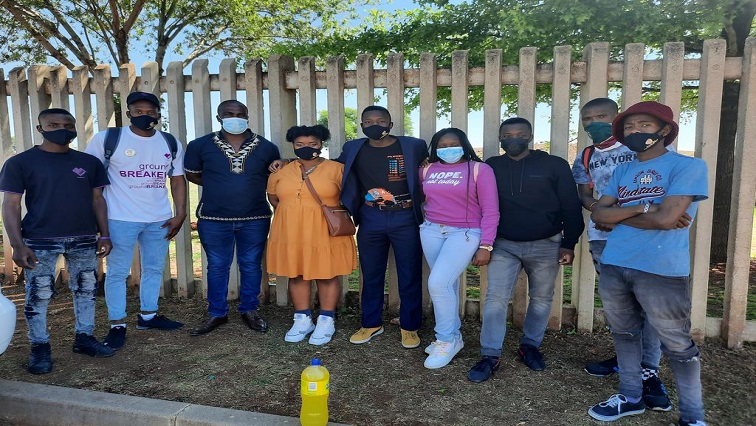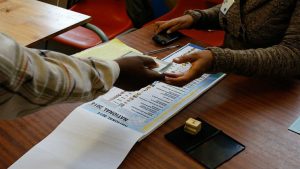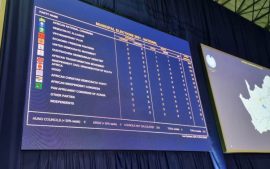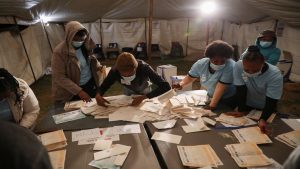Young people are a critical constituency for any political party or independent candidate hoping to win votes in an election. In their manifestos and during their campaigns, political parties and independent candidates make a wide range of promises, from job opportunities to improved services, to attract voters.
However, do they really understand young people’s needs and do their messages resonate with them? Tshepo Phagane spoke to several young people in Gauteng about the upcoming municipal elections and discovered a vocal youth that wants to be heard.
18-year-old Nthabeleng Dikwepe from Sebokeng in the Vaalrand, like most people, feels as if politicians are only interested in their plight during election time. He lives with his grandmother and they both survive on her pension. He believes that politicians once they are elected, need to start playing an active role in driving youth development initiatives.
“They always talk about change, what is change. There is no change in the community. If you want to kill the future of the country, you need to start killing young people. That is what they are doing right now, the young people are dying and that is why they don’t care. We have a lot of potential. The youth are business-minded if they can just get support.”
Ayana Kodisang says her local municipality, the embattled Emfuleni in southern Gauteng, which has been making headlines regarding the billions it owes Eskom and Rand Water and the crisis around sewage spills, is not doing enough for its future generation, the youth.
“All they do is give people jobs to pick up the rubbish. Then on Tuesday or Monday, the rubbish truck does not come to collect trash and we cannot sit with rubbish in our homes. People will then take their rubbish and go dump it in the open space. Afterwards, they say we are creating jobs, what is the job? Get people to come and clean up the trash. It continues, nothing changes.”
23-year-old Bongani Ngubane from Orange Farm, south of Johannesburg, would not mind doing such a job. But he says he does not know what criteria are used when choosing people for such jobs. He has submitted his CV without success and is now convinced that it is not about your capabilities but who you know and how much you are willing to pay for a job
“I completed matric in 2019. Last year there was the coronavirus, I dropped out as I had no funds and returned home. It was tough. I am still sitting at home, but I would like to go back to school. At home we are many. We are not poor but the money that comes goes towards food and other stuff. Not that I don’t want to go to school I understand my home situation I don’t want to put pressure on them. So whatever little money I would get from piece jobs I would save to go back to school.”
Kodisang feels that job opportunities offered by municipalities are limiting.
“The government is always about we are going to create jobs. For them, jobs mean doing plumbing, building. But our youth are not into that. Our youth are into music, poetry, acting, modelling, like everything art, we are in the media industry.”
22-year-old Nonhlanhla Nqukela from Sebokeng believes that politicians need to listen more to the views of young people and not make decisions for them. She believes that the messages politicians are sending to potential voters, especially young people, in their manifestos or during campaigning do not resonate with the youth.
“No, to be honest, I feel like they are more focused on old people because older people are the ones that vote. They are the ones that were then when they voted in ’94 and know the importance of voting. However, if they don’t stress the importance to young people, the young people won’t be interested, and they don’t reach out to young people.”
She says politicians should at least target the youth on social media, which is where they spend most of their time.
“Right now I heard that there are new political parties, but we do not know their names, we don’t know their leaders, we don’t even know our municipality mayor, we have no clue.”
Dikwepe now wants to go into politics to be the voice of the youth, which he feels is lacking at the moment.
“In Parliament, you can’t have like an older representative representing the young people. Why can’t we have a young person there taking the needs of the youth, as an older person you don’t know the needs of the youth. We not going forward with old people, they are old and in like 5 years they retire. So, the youth we still have like 20 years to come, yeah, we still have that hunger.”
For Ngukela, nothing in politics appeals to her. She just sees disorder.
“When you watch the opening of Parliament and you see the behaviour of our politicians, you sit there and you ask yourself, ok are we being led here or are they just fighting among themselves, what about, us. If they are not leading us, then what is happening? So, I don’t have any interest. I don’t want to see myself fighting in Parliament, it has no order.”
According to the Electoral Commission, of the 26.2 million registered voters, over 17% are between the ages of 18 to 29.
Youth unemployment remains a sticking point in these elections with Stats SA’s Quarterly Labour Force Survey in April this year, putting youth unemployment for those aged 25 – 34, at 42.9%.






